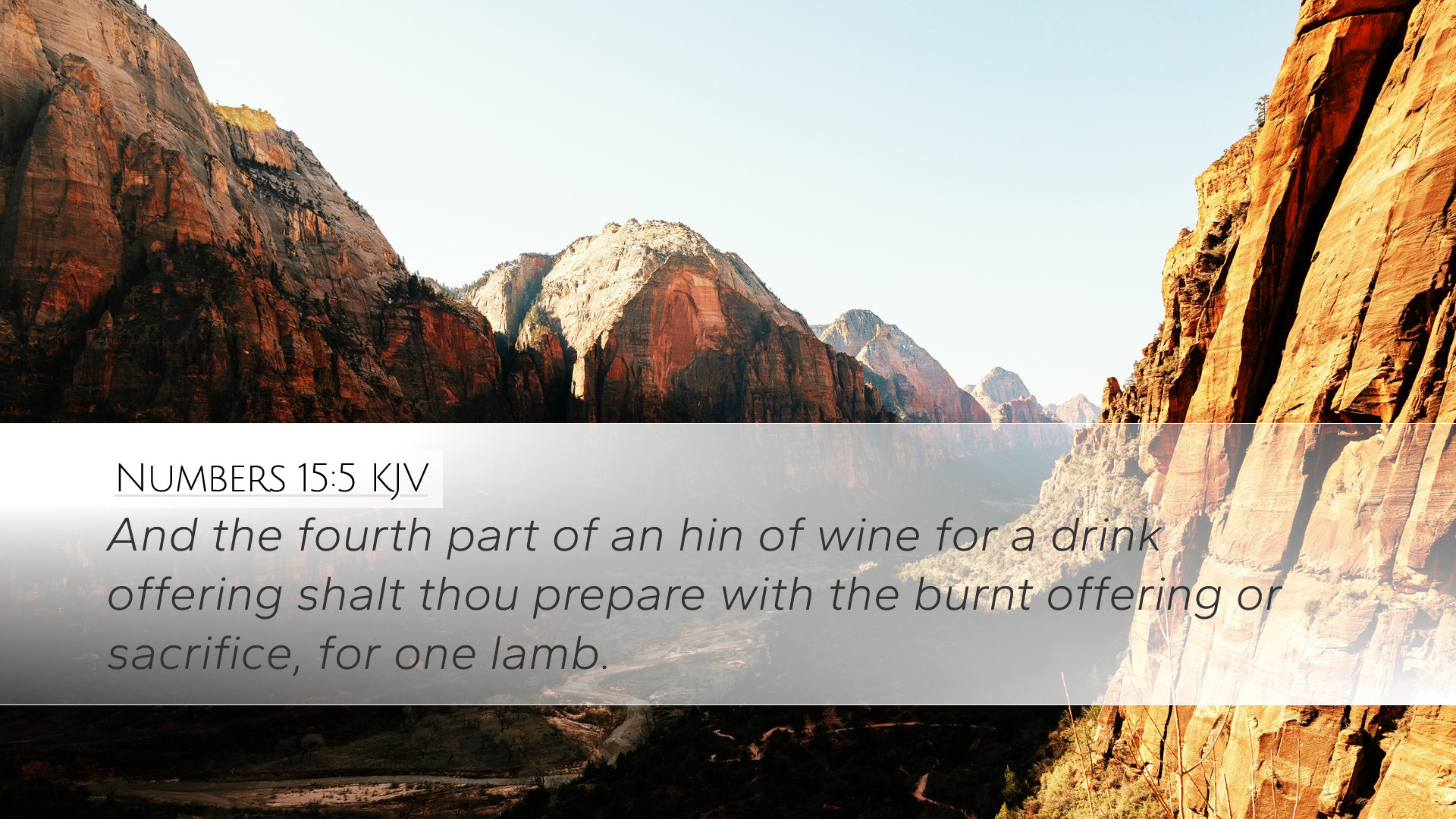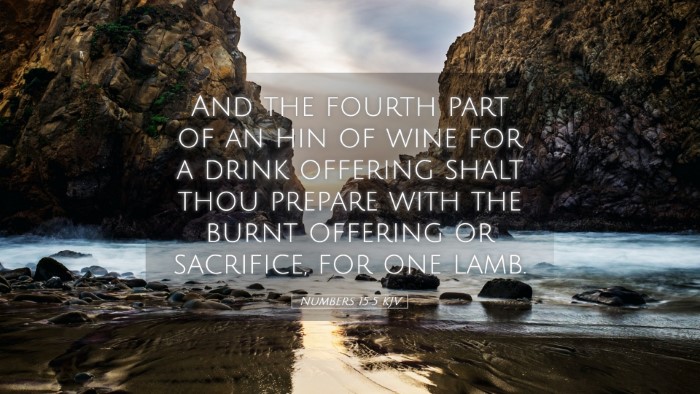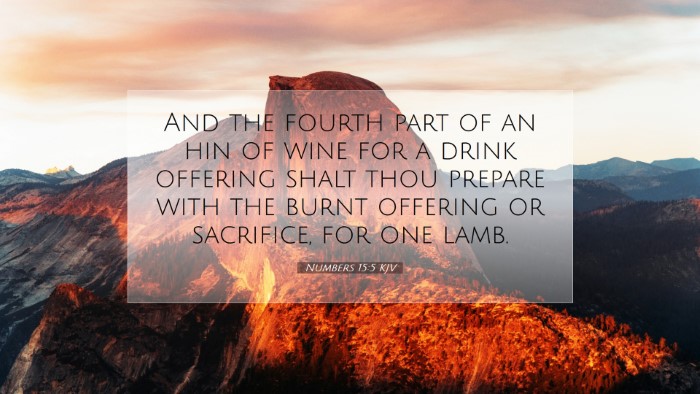Commentary on Numbers 15:5
Verse: “And one tenth part of an ephah of flour for a meat offering, mixed with the fourth part of a hin of oil.”
Introduction
The book of Numbers continues the narrative of the Israelites in the wilderness, focusing on their organization, laws, and practices given by God. Numbers 15:5 is part of the laws regarding offerings, specifically those accompanying the burnt offerings. This commentary aims to explore the significance of this verse and its implications for worship and service to God, drawing insights from established public domain commentaries.
Commentary Insights
Contextual Background
This passage occurs within a section that deals with the offerings required by Israel as a part of their covenant relationship with Yahweh. It highlights the meticulous nature of worship and the precise requirements expected from the people. As Adam Clarke notes, offerings were integral to the religious life of the Israelites, showcasing their dependence upon God and their commitment to His commandments.
Understanding the Offering
- Meat Offering: The term “meat offering” refers to what is more accurately translated as a “grain offering.” This presents the idea of presenting one’s best agricultural products to God, a theme emphasized in many of the sacrificial laws outlined throughout the Torah.
- Ephah: An ephah is a unit of measure for dry goods, roughly equivalent to about 3/5 of a bushel. The requirement of a tenth part of an ephah as stated in this verse signifies the importance of dedicating a proportional amount to God, reinforcing the principle of giving back to God what He has already provided.
- Oil: The inclusion of oil indicates that the offering is not to be plain but enriched. Oil was a symbol of joy and blessing throughout Scripture; it enhances the significance of the offering, as noted by Matthew Henry, showing that the presentation to God ought to be generous and joyful, reflecting abundance rather than mere obligation.
Theological Implications
This verse speaks deeply to the nature of worshipping God. The command to present specific proportions of flour and oil underscores not only the precision desired in worship but also the heart behind the giving. Albert Barnes elucidates that these offerings symbolize the acknowledgment of God’s provision and are an expression of gratitude and reliance upon Him.
1. Obedience To Divine Commands
The detailed specification for the offerings within Numbers is a reminder of how God values obedience from His people. The act of giving, particularly in specifically measured amounts, symbolizes our submission to divine authority and reflects a recognition of God’s supreme place in our lives.
2. Generosity in Worship
The stipulation of mixing the flour with oil speaks to the attitude in which offerings should be made. God desires not just the minimum but the best we can offer. By doing so, we acknowledge His goodness and grace, which Clarke identifies as essential to worship. It reinforces the idea that true worship is an act that ought to come from a place of joy and abundance rather than mere compliance.
3. The Importance of Proportionality
By demanding a specific proportion—one-tenth of an ephah—God teaches His people a principle of stewardship. This conveys that what He has bestowed upon us must be shared in service for His glory. This principle spans beyond ancient Israel into the contemporary Christian life, where believers are called to be prudent stewards of God’s blessings.
Practical Application for Today
For pastors, students, theologians, and Bible scholars, the lesson from Numbers 15:5 serves as a foundational principle for approaching God in worship today:
- Heart Attitude: Worship should stem from genuine gratitude and joy. Every act of worship—from singing and prayer to giving—should reflect our relationship with God.
- Generosity and Stewardship: Christians are called to give generously, emulating this principle of proportionality in their own churches and communities. This commitment signifies a deep reliance on God as the source of all provision.
- Attention to Detail: Just as God required specific measures for offerings, believers should take seriously their approach to all of life’s offerings and commitments, ensuring they align with God’s will and glory.
Conclusion
Numbers 15:5, though succinct, encapsulates rich theological truths about worship, generosity, and obedience. Drawing from the insights of Matthew Henry, Albert Barnes, and Adam Clarke, we discover that the details of worship—how we give, what we offer—carry profound significance in our relationship with God. Believers today are invited to reflect on the spirit of their offerings, commit to generous stewardship, and cherish the transformative relationship fostered through meticulous worship.


